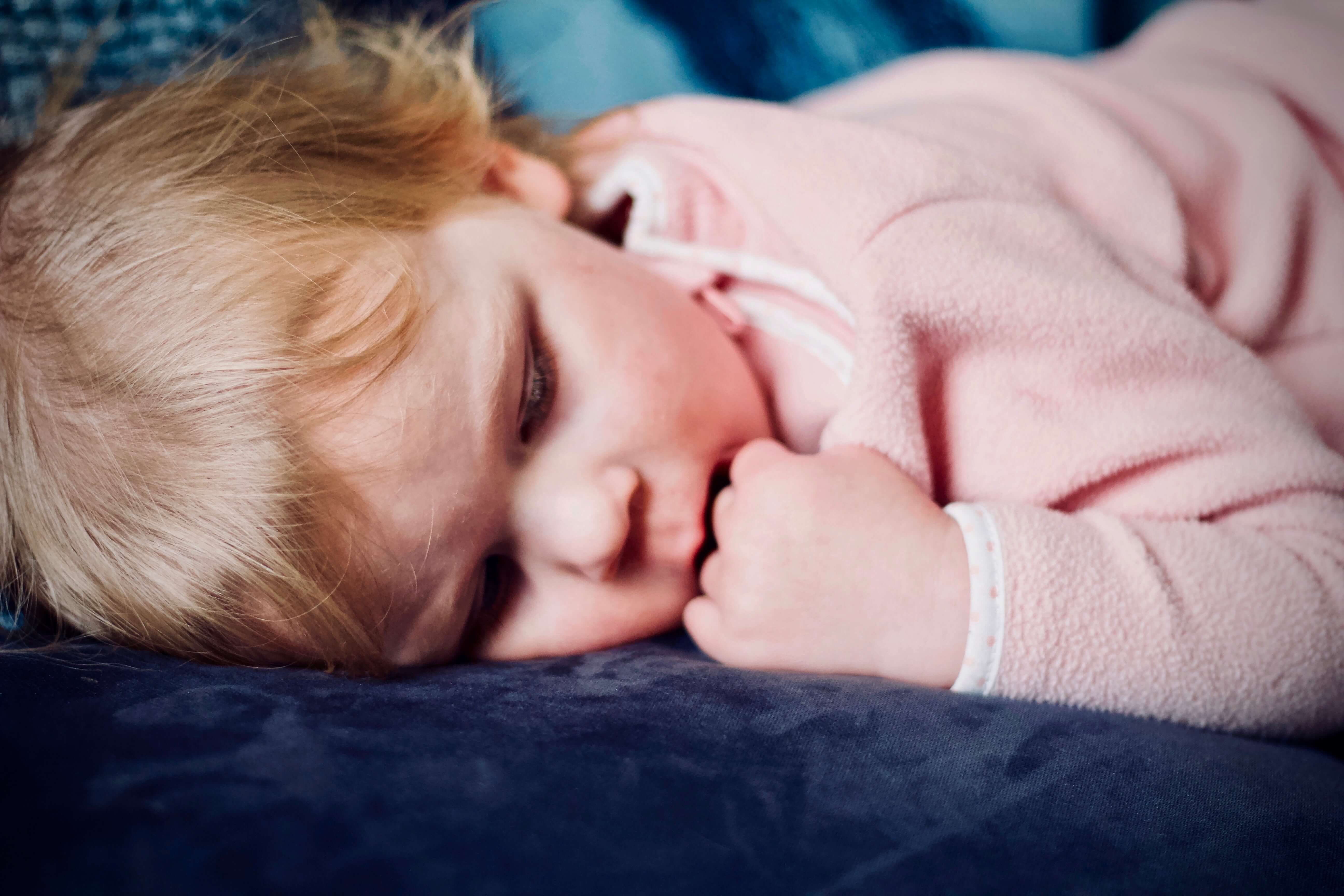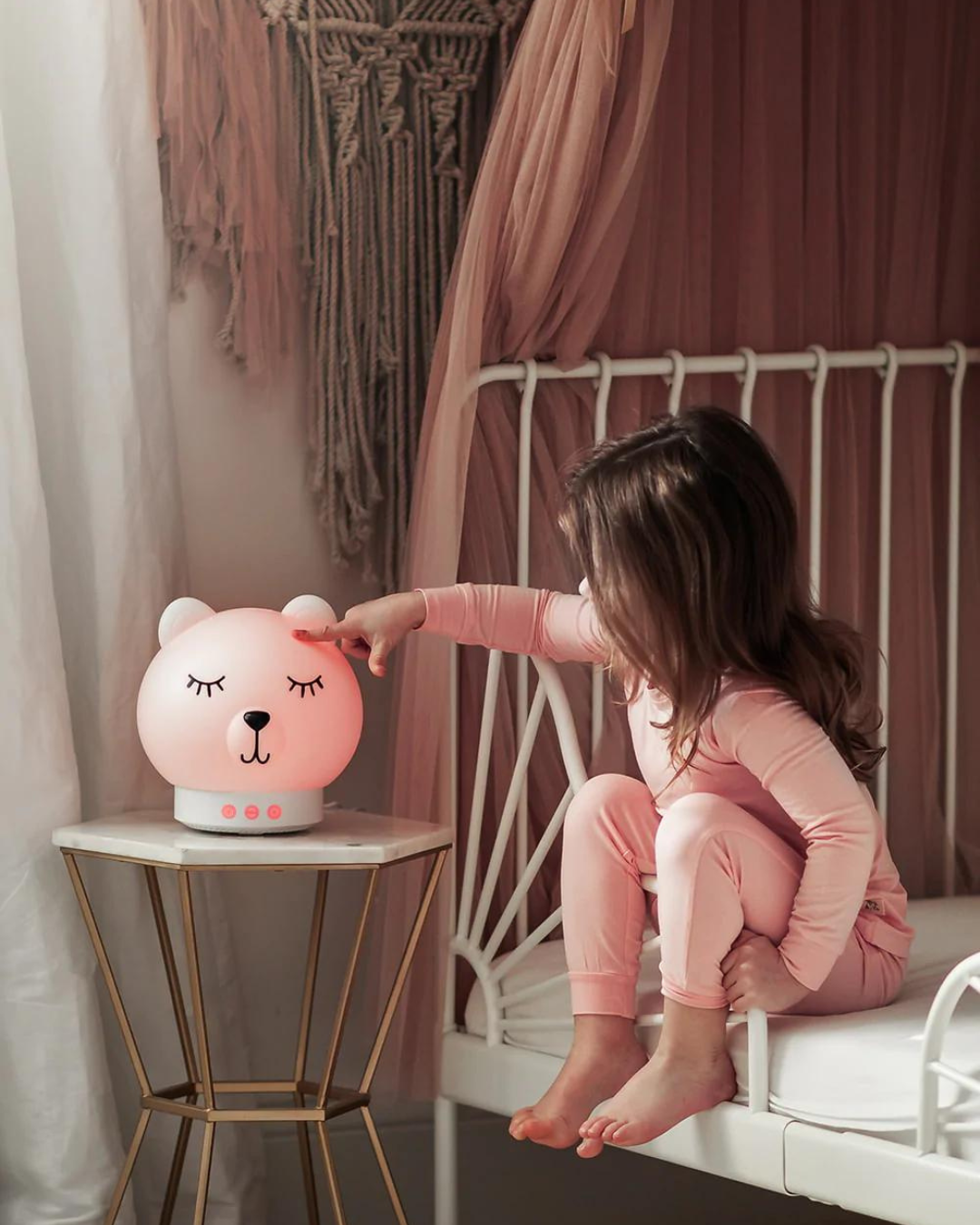New parents always wonder about the expression "sleeping like a baby," which is often used in our language to describe a peaceful sleep. But baby sleep does not necessarily fit the above description, and it definitely varies from baby to baby.
And as cliché as it might sound, parents should create a sleeping routine for their newborns, which is not an easy task to complete.

The science of sleep
Lack of sleep is the number one reason new parents are exhausted, so we all understand that a functional sleep schedule is essential for babies and parents alike.
But before referring to methods and techniques that one can try to achieve this, it is worth looking at the science of sleep to understand the context and factors that affect a child's sleep. Kids sleep to reboot just like adults. A baby conceived shortly before birth sleeps about 90% of the day.
This also happens the first time after they are born. But that 90% is only sometimes continuous. In the first two months of their life, newborns have very short sleep cycles, which means they wake up frequently. Typically, breastfed children may wake up every three hours to feed. It is also important to know that babies at this age do not recognize the difference between daytime sleep and night sleep. After the first two months and up to the first year of their life, the process of understanding night sleep begins.
For example, the night sleep cycle during these months lasts nine to ten hours, and the sleep during the day is only three to four.
Researchers argue that the reason children constantly wake up at night is biological and related to survival itself, as parents are kept alert to protect them from any dangers. After the first year and up to the age of three, the evening sleep cycle remains 9.5 to 10.5 hours, but children's sleep during the day gradually shrinks.
Why they don't sleep
The factors affecting children's sleep in the first year of life vary. One is hunger — a hungry child will not fall asleep quickly. It's also the feeling of a dry diaper, so a child who doesn't wear a clean diaper may have sleep disturbances.
Light, noise, and other external factors obviously affect baby sleep. After the first year, other reasons are added as well, including the children's refusal to go to bed and continue their play, the difficulty of transitioning from their crib to bed, but also nightmares and night terrors that children at this age very often experience.

What really helps
First, it is good to say that there is no panacea to get the child to sleep. No matter how much someone preaches that they have found a way to do it, it is good to remember that every child is different, and parents are responsible for discovering the schedule that works for them.
In this spirit, and bearing in mind that when a child cries, it is communicating and not indicating to a parent that they have failed at something, let's see what we can do to help a baby sleep.
Let's start with the basics: It is a universal assumption that for a baby to fall asleep more quickly, it must have what they need. That is food and a dry diaper. It goes without saying, but, sometimes, in the stress of solving the mystery of sleeping challenges, we forget.
Consistency, consistency, consistency: In case you couldn't tell from the triple repetition of the word, consistency helps a lot. Try to build a "ritual" that leads to sleep and practice it repeatedly. Repetition goes a long way in helping your baby get used to it and create a positive expectation for what's next. In the first twelve months, you can start the sleep process when the baby is sleepy. Don't put it in the crib after they fall asleep, but from when they start to get tired. Keep your warm hand on it while you try to put it to sleep, and slowly remove it. If they wake up and cry at some point, be consistent in how you react. You can feed them under low light or hold them for a while before putting them back in their crib. Sleep should not be about loneliness and rejection, so it is crucial that the child feels the safety of a parent in the process.
From twelve months onwards, you can create a ritual that works for your child. A bath to relax them, brushing their teeth with them, reading stories until they fall asleep, and then a good night kiss.
Try to create a positive association with sleep and not blackmail the separation process. This means that it is okay if the child is also in your bed for a while during the night. Sleep must contain security, companionship, and relief. Separation is a process that comes naturally, so many times, parents will be forced to stay with their babies until they go to sleep.
The power of touch. Touch is extremely important for calming and nurturing emotions in the early years of a baby's life. The heartbeat of the parent calms the child. Your touch warms them. Touch comforts children when they experience bad emotions. In the first years of life, babies do not know how to relieve themselves from negative emotions, so if we want it to be a trait they have in the later years of their lives, it must be cultivated by parents at this age.
The noise that helps. It is known that many sounds will upset and wake your child, but not all. White noise or sounds of the sea or nature can help tackle the "fight" of sleep.
Day and night. As we said before, babies don't know the difference between day and night from birth. But it helps them learn if you dim the lights as bedtime approaches. It's important to know that you shouldn't show any screens at all for at least an hour before bedtime so their brain can calm down.
Program change. If you want to change your baby's sleep schedule, you have to do it with patience. Start slowly with fifteen minutes to half an hour each day, until it matches yours. Consistency is important, but so is adaptability if we want to be realistic about babies.
I cry; therefore, I exist. The children will cry. This is how they communicate; it is part of the process of their independence. It takes fortitude and patience as you develop a sleep routine with them. You set the schedule, no matter how hard they cry to do it. Use a calm and soothing voice when addressing them, but be firm.
You are not alone. If the process of sleeping affects you psychologically, seek help from a specialist. Happy parents equal happy kids. Also, share the burden between the two parents or ask for help from other family members if you are a single-parent family. Even in the first few months when the mother is breastfeeding, it does not mean that the other parent cannot help with sleepovers and share the obligations that are created to get a baby to sleep.
Try Baby Dream Machine

The Baby Dream Machine™ is a 5-in-1 sleep device that combines scientifically proven methods that help your child fall asleep and stay asleep, naturally. These include:
Night Light & Red Light Therapy
Red Light helps boost the natural melatonin production, the hormone that helps us fall asleep and stay asleep. The Red Light built into Baby Dream Machine™ was perfectly engineered to provide the exact red hue needed to help the body produce melatonin.
Cool-Mist Humidifier
The 400mL Cool-Mist Humidifier creates the optimal 40-60% humidity level for quality sleep and boasts a 12+ hour run time.
Pink Noise Sound Machine
Pink Noise is a more balanced version of white noise and is the only sound known to promote stable, deep sleep while improving sleep quality.
Aromatherapy
Aromatherapy can aid in getting more quality sleep. Essential oil is known to help calm, soothe and relax.
tag:Wonder Wall


